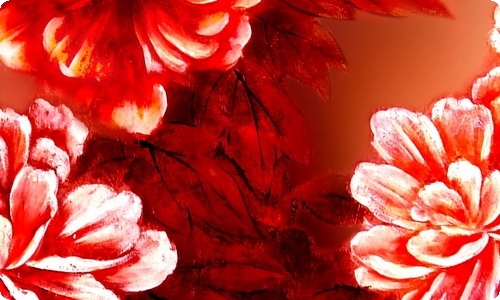
熊猫介绍英语作文汇总9篇
在我们平凡的日常里,大家都不可避免地会接触到作文吧,根据写作命题的特点,作文可以分为命题作文和非命题作文。如何写一篇有思想、有文采的作文呢?下面是小编收集整理的熊猫介绍英语作文9篇,欢迎阅读,希望大家能够喜欢。
熊猫介绍英语作文 篇1
Pandas eating bamboo at the National Zoo in Washington, D.C.Despite its taxonomic classification as a carnivore, the panda has a diet that is primarily herbivorous, which consists almost exclusively of bamboo. This is an evolutionarily recent adaptation. Pandas lack the proper enzymes to digest bamboo efficiently, and thus derive little energy and little protein from it.
While primarily herbivorous, the panda still retains decidedly ursine teeth, and will eat meat, fish, and eggs when available. In captivity, zoos typically maintain the pandas' bamboo diet, though some will provide specially formulated biscuits or other dietary supplements.
熊猫介绍英语作文 篇2
The giant panda (Ailuropoda melanoleuca) ("black-and-white cat-foot") is a mammal classified in the bear family, Ursidae, native to central-western and southwestern China. It is easily recognized by its large, distinctive black patches around the eyes, ears and on its rotund body. Though technically a carnivore, the panda has a diet which is 98% bamboo. However, they may eat other foods such as honey, eggs, fish, and yams.
The Giant Panda is an endangered animal; an estimated 3,000 pandas live in the wild[2][3] and over 180 were reported to live in captivity by August 20xx in mainland China[3] (another source by the end of 20xx put the figure for China at 221[4]), with twenty pandas living outside of China.[citation needed]
However, reports show that the numbers of wild panda are on the rise.[5][6]
The giant panda has long been a favorite of the public, at least partly on
account of the fact that the species has an appealing baby-like cuteness that makes it seem to resemble a living teddy bear. The fact that it is usually
depicted reclining peacefully eating bamboo, as opposed to hunting, also adds to its image of innocence. Though the giant panda is often assumed docile because of their cuteness, they have been known to attack humans, usually assumed to be out of irritation rather than predatory behavior.
The Giant Panda has a very distinctive black-and-white coat. Adults measure around 1.5 m long and around 75 cm tall at the shoulder. Males can weigh up to 115 kg (253 pounds). Females are generally smaller than males, and can occasionally weigh up to 100 kg (220 pounds). Giant Pandas live in
mountainous regions, such as Sichuan, Gansu, Shaanxi, and Tibet. While the Chinese dragon has been historically a national emblem for China, since the latter half of the 20th century the Giant Panda has also become an informal national emblem for China. Its image appears on a large number of modern Chinese commemorative silver, gold, and platinum coins.
The Giant Panda has an unusual paw, with a "thumb" and five fingers; the "thumb" is actually a modified sesamoid bone, which helps the panda to hold the bamboo while eating. Stephen Jay Gould wrote an essay about this, then used the title The Panda's Thumb for a book of essays concerned with evolution and intelligent design. The Giant Panda has a short tail,
approximately 15 cm long. Giant Pandas can usually live to be 20-30 years old while living in captivity.
Until recently, scientists thought giant pandas spent most of their lives alone, with males and females meeting only during the breeding season. Recent
studies paint a different picture, in which small groups of pandas share a large territory and sometimes meet outside the breeding season.[citation needed]
Like most subtropical mammals, but unlike most bears, the giant panda does not hibernate.
[edit] Diet
Pandas eating bamboo at the National Zoo in Washington, D.C.Despite its taxonomic classification as a carnivore, the panda has a diet that is primarily herbivorous, which consists almost exclusively of bamboo. This is an
evolutionarily recent adaptation. Pandas lack the proper enzymes to digest bamboo efficiently, and thus derive little energy and little protein from it.
While primarily herbivorous, the panda still retains decidedly ursine teeth, and will eat meat, fish, and eggs when available. In captivity, zoos typically maintain the pandas' bamboo diet, though some will provide specially formulated biscuits or other dietary supplements.
熊猫介绍英语作文 篇3
Panda is one of the scarcest animals. People in the world like it very much. There used to be many pandas in China long ago. As the balance of nature was destroyed and the weather was getting warmer and warmer, pandas became less. But at present, the number of pandas is increasing year by year. There are now so many pandas that some are being sent to other countries so that people there can enjoy them.
熊猫是世界上濒危动物之一.世界各国人民都非常喜爱它.很久以前中国曾有许多熊猫,由于自然平衡遭到破坏,气候变暖,大熊猫越来越少.但目前,大熊猫的数量正逐年增多.正因如今有这么多的大熊猫,以至于有些被派往其他国家,使那里的人民可以欣赏它们.
Nowadays, the biggest nature park for panda in China is in Sichuan. There is a research centre for nature and wild life there. Scientists hope that one day they will have enough pandas to be set free and let them live in the wild again.
如今,最大的熊猫自然公园在中国四川.那里是研究自然野生动物的中心.科学家们希望有一天,他们将有足够多的大熊猫被重新放归野外.
熊猫介绍英语作文 篇4
Chinese panda living in the south they are a bamboo for food eat slowly eat 12 hours a day every day to eat 15 kilograms of bamboo. Their numbers are fewer and fewer of the panda in the wild only just over 1600 have a small number of people living in the zoo.
They are a lovely precious animals we should pay more to protect.
熊猫生活在中国的南部,它们以竹子为食,吃的很慢,一天要吃12个小时,每天要吃15公斤的竹子。它们的数量越来越少,在野外的熊猫只有1600多只,还有少数生活在动物园。
它们是一种可爱的珍贵的.动物,我们应多加保护。
熊猫介绍英语作文 篇5
国家一级保护动物大熊猫,你们看见过大熊猫吗?快来看看吧!下面的就是一只可爱的大熊猫,看它吃的多香呀!笑的那么可爱。
你们说,熊猫为什么那么少,就是因为人类的破坏乱砍树木,不爱护花草,破坏大气层,才导致熊猫的减少,所以我们要爱护熊猫,大熊猫可是食草动物知道吗,最爱吃竹子,但是在动物园里的大熊猫可不一样饲养员们给他们喂水果吃。熊猫趣闻:近几年,科学家的野外隐藏摄像机发现,雄性野生熊猫在树上留下气息记号时,会抬起一条后腿,像公狗一样,然后把尿往树的高处撒去。尿撒得越高,雄性大熊猫的社会地位也就越高。好玩吧!跟狗一样哈哈!真好玩。在北郊的斧头山上,大家建立起郁郁葱葱的竹海与森林,形成与成都市区不同的“小气候”,1987年,正式建成,现已经发展成为一个专门从事濒危野生动物研究、繁育、保护教育和教育旅游的非营利性机构。
你们知道大熊猫怎么消化竹子的吗?科研人员发现,大熊猫的消化道粗短而又简单,没有一般食草动物细长的肠道和复杂的胃或发达的盲肠。此外,在大熊猫的基因序列于20xx年公布之后,他们还发现大熊猫消化道内缺乏一些帮助食草动物消化纤维素和半纤维素(它们是纤维性植物饮食的主要成分)的酶。这让科研人员感到非常困惑,缺乏这些必要条件的大熊猫是如何消化竹子的呢?
科研人员利用基因测序技术,分析5000多个核糖体RNA序列,最终在大熊猫体内发现了多种消化道微生物,而且和一些食草动物体内的微生物非常类似。这些都有助于动物消化体内的纤维素,而且其中有了7种是熊猫消化道内独有的。拜拜!
The national level protection animal giant panda, have you ever seen giant pandas? Come and see! The following is a lovely giant panda, see how delicious it eats! The smile is so lovely.
You said, why so little panda, it is because of the destruction of the human disorderly cut down trees, don't take care of flowers and plants, destruction of the atmosphere, to lead to a drop in the panda, so we have to take care of the panda, the giant panda is herbivorous animals know, likes eating bamboo, but not as the giant pandas in the zoo keepers to feed their fruit. Wild panda anecdotes: in recent years, scientists found hidden cameras, male wild pandas left a breath marks on a tree, will lift a leg, like a male dog, and then the urine to the heights of the tree and. The higher the urine, the higher . the social status of the male giant panda. Good play! Just like a dog! This is fun. Ax mountain in north of the city, we established a lush bamboo sea and the forest, form different from downtown cheng du "microclimate", in 1987, formally completed, now has developed into a specialized in endangered wildlife research and breeding, protection of education and education tourism, a nonprofit organization.
Do you know how pandas digest bamboo? Researchers have found that the giant panda's digestive tract is short and simple, and there is no such thing as a long, plant-eating animal with a thin gut and a complex stomach or a developed cecum. In addition, the giant panda's genome sequences announced in 20xx, after they found the giant panda to the lack of some help in the digestive tract herbivores digest cellulose and hemicellulose (they are the main components of the fibrous plant diet) enzymes. This is confusing for researchers, and how does the lack of these necessary conditions digest bamboo?
Researchers use of gene sequencing technology, analysis of more than 5000 ribosomal RNA sequences, eventually in the giant panda, found a variety of digestive tract bacteria and some microbes are very similar to grazing animals. These help animals digest cellulose in their bodies, and seven of them are unique to the panda's digestive tract. Bye bye!
熊猫介绍英语作文 篇6
óD1Dü¨μó¢ó×÷Pandathe National TreasurePanda is one of the scarcest animals. People in the world like it very much. There used to be many pandas in China long ago. As the balance of nature was destroyed and the weather was getting warmer and warmer, pandas became less. But at present, the number of pandas is increasing year by year. There are now so many pandas that some are being sent to other countries so that people there can enjoy them.Nowadays, the biggest nature park for panda in China is in Sichuan. There is a research centre for nature and wild life there. Scientists hope that one day they will have enough pandas to be set free and let them live in the wild again.
熊猫介绍英语作文 篇7
看书的时候,我偶然看到一张熊猫的照片。它身子胖乎乎,头和身子都是白色的,肩部和四肢是黑色。它长着一对黑眼圈,看上去就像戴了一副黑眼镜,可真酷啊!毛看起来是软绵绵的,尾巴短短的,如果不仔细看的话,还以为没尾巴呢!熊猫真可爱,我爱熊猫。
Reading a book, I happened to see a photo of a panda. It was chubby, with its head and body white, and its shoulders and limbs black. It looks like a pair of black glasses, and it looks like a pair of dark glasses. The hair looks soft, the tail is short, if you don't look carefully, you think you have no tail! Panda is cute. I love pandas.
熊猫介绍英语作文 篇8
My favorite animal is the panda, it not only cute, but also the national treasure of China! Now let me introduce its appearance and habits.
A big black rim of the eye by giant panda eyes, as if wearing a big pair of sunglasses; its belly fat, like a big balloon; it also has a short tail, furry, feels it must be very comfortable.
The giant panda is the national level to protect animals, which live in bamboo, bamboo you favorite! It was black and white, but it can't take color photos, only black-and-white photos, because it was only white and black. If it beside bamboo or holding a bamboo, bamboo green in the picture that will be! We now know that the giant panda looks and living habits! You like pandas?
熊猫介绍英语作文 篇9
The giant panda (Ailuropoda melanoleuca) ("black-and-white cat-foot") is a mammal classified in the bear family, Ursidae, native to central-western and southwestern China. It is easily recognized by its large, distinctive black patches around the eyes, ears and on its rotund body. Though technically a carnivore, the panda has a diet which is 98% bamboo. However, they may eat other foods such as honey, eggs, fish, and yams.
The Giant Panda is an endangered animal; an estimated 3,000 pandas live in the wild and over 180 were reported to live in captivity by August 20xx in mainland China (another source by the end of 20xx put the figure for China at 221), with twenty pandas living outside of China.[citation needed] However, reports show that the numbers of wild panda are on the rise.[5][6]
The giant panda has long been a favorite of the public, at least partly on account of the fact that the species has an appealing baby-like cuteness that makes it seem to resemble a living teddy bear. The fact that it is usually depicted reclining peacefully eating bamboo, as opposed to hunting, also adds to its image of innocence. Though the giant panda is often assumed docile because of their cuteness, they have been known to attack humans, usually assumed to be out of irritation rather than predatory behavior.
The Giant Panda has a very distinctive black-and-white coat. Adults measure around 1.5 m long and around 75 cm tall at the shoulder. Males can weigh up to 115 kg (253 pounds). Females are generally smaller than males, and can occasionally weigh up to 100 kg (220 pounds). Giant Pandas live in mountainous regions, such as Sichuan, Gansu, Shaanxi, and Tibet. While the Chinese dragon has been historically a national emblem for China, since the latter half of the 20th century the Giant Panda has also become an informal national emblem for China. Its image appears on a large number of modern Chinese commemorative silver, gold, and platinum coins.
The Giant Panda has an unusual paw, with a "thumb" and five fingers; the "thumb" is actually a modified sesamoid bone, which helps the panda to hold the bamboo while eating. Stephen Jay Gould wrote an essay about this, then used the title The Panda's Thumb for a book of essays concerned with evolution and intelligent design. The Giant Panda has a short tail, approximately 15 cm long. Giant Pandas can usually live to be 20-30 years old while living in captivity.
Until recently, scientists thought giant pandas spent most of their lives alone, with males and females meeting only during the breeding season. Recent studies paint a different picture, in which small groups of pandas share a large territory and sometimes meet outside the breeding season.
Like most subtropical mammals, but unlike most bears, the giant panda does not hibernate.




